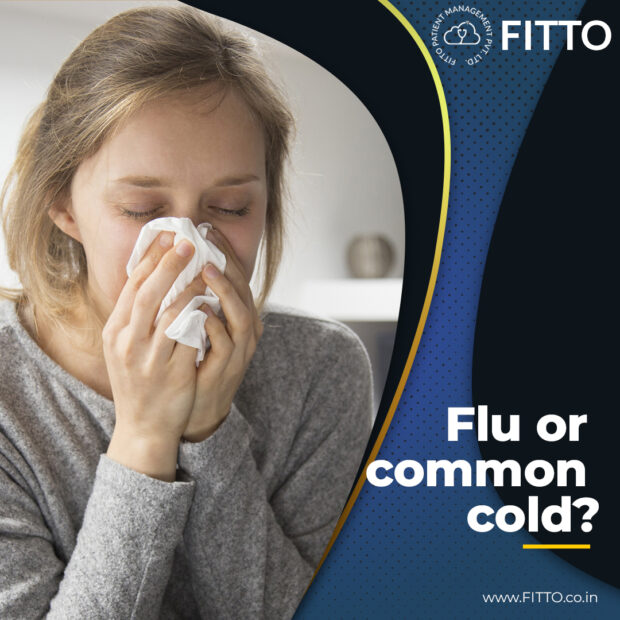Flu 101: Myth vs. Fact
Flu season brings about its fair share of skepticism and queries, especially with COVID-19 cases on the rise yet again. But it is vital to draw a distinction between myth and fact, as misinformation in medicine can be devastating. Random WhatsApp forwards and nosy relatives may give you a hundred different handy tips about the flu that may work for the time-being but cause harm in the long run, which is why you should always verify advice and rely only on medically reviewed articles. Read on to find out some common misconceptions regarding the flu or influenza, and the truth behind the lie…
Myth #1: “The flu is just like a cold.”
Fact: Influenza is much worse than the common cold; in 2019 alone it caused approximately 24,000 deaths. Though basic symptoms like runny nose, headache, sore throat, fever, sneezing, and cough are experienced with both the flu and the common cold, hospitalizations occur as a result of breathlessness, high fever, etc, all induced by influenza. Getting vaccinated against the flu can reduce the chance of symptom severity.
Myth 2: “Starve the fever/cold.”
Fact: Poor nutrition can significantly slow down recovery time. It is vital that you eat hearty meals while fighting a cold or flu. Even if your appetite decreases, it is still important to eat full meals and stay hydrated. Try plain soups, dal and rice, or other simple yet filling meals.
Myth 3: “Having wet hair, going out in cold weather, swimming, eating ice cream, or forgetting to wear a jacket can cause the flu.”
Fact: We’ve all heard this one a million times; our family members urging us to bundle up, or avoid wet hair, or ban ice cream in fear of catching the flu. But just because the flu coincides with colder seasons does not mean that the two are correlated. These factors do not cause the flu, only catching the influenza virus can cause the flu. Weather, wet hair, and cold foods will, however, exacerbate pre-existing symptoms.
Myth 4: “You don’t need to get the COVID-19. Herd immunity will work.”
Fact: Much like the flu, the COVID-19 virus mutates every year, so vaccinating against it will help you stay protected against newer strains that are most likely to cause an outbreak or spike in cases. Herd immunity can only be achieved if a large proportion of the population has been infected, or are already vaccinated. So look out for your fellow citizens and get vaccinated as soon as you can.
Myth 5: “Antibiotics can cure the flu.”
Fact: Influenza is caused by a strain of virus. Antibiotics are only effective against bacterial infection. Hence, curing influenza will require antiviral medication, and definitely not antibiotics.
Myth 6: “If you’re healthy, you do not need the vaccine.”
Fact: Healthy, able-bodied individuals are still capable of getting the flu, however they may be less susceptible than those who are immunocompromised. Regardless, most trusted medical bodies recommend that all those above 18 years of age, including pregnant women, must get the vaccine.
There is no reason to be intimidated by the flu. Don’t allow medical misconceptions to keep you away from the help you need. Instead, stay informed and stay healthy this flu season.
References:
1. https://www.health.harvard.edu/diseases-and-conditions/10-flu-myths
2. https://www.cdc.gov/flu/prevent/misconceptions.htm
About the Author








